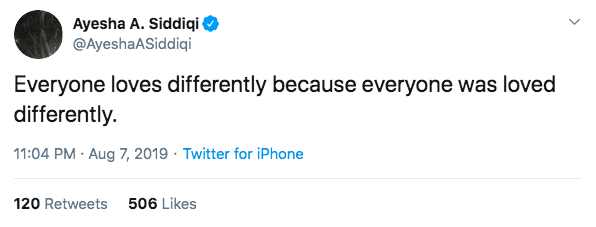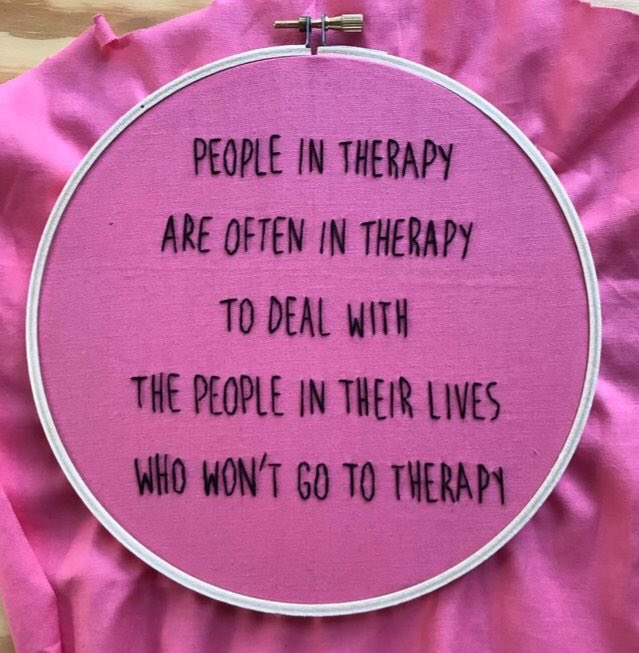The day our parents tell us “I love you” might be the day we ask them if they’re dying or if they’ve been body-snatched.
Stripped of rainbows and butterflies, parental love has always been—at its core—a verb. From young, we understand this through their understated displays of affection: leftover food in the fridge for our midnight hunger pangs, reminders to take our umbrella when we leave home, a lift to the bus stop, shutting our room doors when we forget to do it ourselves, or the sprinkling of small talk over dinner about that one friend we merely mentioned in passing five years ago.
What we might not realise is that this is also how Singaporean parents say, “I’m sorry”.
If you are a Singaporean parent about to get defensive, recall how your parents react to situations when they know they’re clearly in the wrong. These instances could range from the mundane to major, such as forgetting to water the houseplants, guilt-tripping you for not spending enough time at home, or harshly criticising your choice of partner.
Regardless, your parents might have brushed off their mistake by getting defensive, or they would’ve ‘apologised’ in ways that don’t resemble an apology. For example, several hours of hostility later, they might ask whether you want to eat a piece of min jiang kueh that they bought from the market. And just like that, the air magically clears, and all transgressions are instantly forgiven and forgotten.
Frankly, when was the last time your parents sincerely and unreservedly apologised for a mistake by explicitly saying the words, “I’m sorry”?
If you’re lucky, they’ve done it once.
But for the rest of us, waiting to hear these two crucial words is a Sisyphean task, especially when our parents might not even realise our needs and wants. We might stand a higher chance of having an Indian prime minister in the next five years.

Their parents’ pride is repeatedly brought up as the main reason they never seem to say sorry. They stubbornly stick to their justifications for mistakes, especially when they are in the wrong.
“When my dad is driving and misses a turn or does a jam break, his first impulse is to justify his actions because of this or that reason, even though the people around him get affected. In general, I think there’s a lot of pride, so he’d rather bottle up how he really feels. After years of doing that, it just gets harder and harder to admit mistakes,” shares Z.
Similarly, T posits that this sense of pride stems from his parents’ belief that being older means they should not be in the wrong, and hence not see the need to apologise.
His mother “gets super defensive” every time he points out when she messes up. In retaliation, she “comes up with 101 excuses or reasons why she isn’t in the wrong, even though it is clear as day she is in the wrong”. If she ‘apologised’ at all, she would use “rudimentary questions” to make conversation, such as by asking what day it is, or blurting out random trivia or gossip.
Childhood experiences can also remain impactful several decades later, especially if these experiences shaped your perspective of your parents.
After every period of cold war with his mother when L was young, she would invite him to eat with her, perform a random act of kindness for him, or propose some other “communal activity” to “restore civility in the house” and “acceptance back into family life”.
It wasn’t until L was much older that his mother apologised for an old misdeed: she said sorry for kicking him out of the house when he was 10.
According to him, age might have mellowed his mother’s pride, but it might have merely been that he was older and better able to handle complex emotions, so she might have felt more at ease revealing them to him. Ultimately, many parents have a tendency to infantilise their children’s emotions when they’re younger, or assume their children would have short emotional memories.
In an “incredibly scarring” episode from childhood, C recalls doing terribly for her exams. Her father, who’s always had a bad temper, held her head close to the wall and said, “If you do this badly again, I will smash your head against the wall.”
Till this day, her father has never apologised. Even when he makes mistakes now, he just “says ‘oh ok’ and leaves”. He has never said the words, “I’m sorry”.
Underlying their unrelenting pride, R hypothesises that parents never say “I’m sorry” because we tend to take family for granted. Unlike a romantic relationship, where there is a “real threat” that you might lose someone so you try to curb the ‘mistake’ from happening again, a familial relationship is usually ‘for life’, whether you choose to acknowledge it.
“My parents say, ‘Okay, sorry la, sorry la”, or else, ‘Sorry, okay, we cannot do anything right?’ If they feel bad, they might ask, ‘Tomorrow coming home for dinner?’, ‘Want Yakult?’, and ‘Close the door for you?’ There’s never a time when the apology is not only sincere, but also indicates that they realise the larger issue and want to fix things in the relationship,” she explains.
In the end, most of us pick our battles. Sometimes, this means getting so used to our parents’ rampant inability to apologise that we start making excuses for them. We convince ourselves that they simply apologise in other ways that are no less valid, and that not saying “I’m sorry” doesn’t mean they don’t realise what a dick they might have been.

When social media came about, she would observe with mild envy as friends shared screenshots of their witty banter with their parents over WhatsApp, constantly wondering whether she’d ever overcome the invisible yet impenetrable boundary between her and her parents. This “boundary” is also known as “authority”, reinforced by the inherent generation gap.
Our parents come from a generation where parenthood is more often regarded as a binding duty than an opportunity to nurture a thriving relationship with another human.
In the former scenario, becoming a parent brings with it certain expectations and etiquette, such as adhering to a fixed definition of what being a ‘parent’ and ‘child’ mean. When one’s core identity lies in being ‘parent’ and ‘child’, there is little emotional freedom for anyone to be themselves, because neither party is seen as a ‘person’.
To put it simply, being a ‘parent’ means you set the rules in the relationship, while being the ‘child’ means you follow them.
This rigid hierarchy also results in both parent and child drawing boundaries around what they share with each other.
Discussing school work? That’s okay. Talking about getting rejected by a crush? Perhaps not; it might force intimate conversations. Helping children to understand the fights between their parents? Completely necessary, yet downright uncomfortable and hence a major no-go.
Inevitably, this inability to truly be oneself creates a dynamic fraught with unrealistic expectations when it comes to saying sorry. For instance, if our parents apologise for their wrongdoing, we might be inclined to expect their apology to be the ‘gold standard’, where they own their mistakes and expect nothing in return, because we’ve misguidedly placed them on a pedestal. In this dynamic, they are a ‘parent’—the model human being.
When they fail to be an upright human, as anyone held to a high ideal eventually will, we become disappointed in their subpar apologies.
Moreover, we might believe: if our parents can’t do something themselves, then don’t expect us to. But this ‘tit-for-tat’ approach, where we don’t see the need to extend grace unless we can guarantee a sufficient apology in return, is hardly rooted in empathy—a necessary quality for both parties to have to ensure successful reconciliation after wrongdoing.
On the other hand, this authoritarian dynamic means parents might already feel doubly ashamed for having wronged their child. Coupled with the lack of open communication, their fear of resentment, rejection, and judgement from their children might only cause them to double down and build more walls, refusing to be vulnerable through apologising.
The result is an infuriating, self-perpetuating Catch-22—their fear of having their apology resented reinforces the pride and stubbornness that hinders them from apologising, resulting in the very resentment from their children that they feared.

When both parent and child mutually accept that they’re flawed human beings trying to build something meaningful together, this dynamic is often more fluid, uncertain, experimental, and open to making mistakes. Like my friend, however, few of us actually possess this type of relationship with our parents.
That doesn’t mean we can’t start building a more honest relationship now, whether with our parents or our own children.
We must, first and foremost, do away with the notion of ‘face’. When it comes to saying sorry within a parent-child relationship, this means parents must confront their fear of disappointing their children or appearing less than perfect. If their children are genuinely ready and willing to create a deeper relationship with them, then their refreshing honesty would naturally be wholeheartedly appreciated and embraced.
To do this, they need to realise that genuine apologies will liberate them, even if they don’t receive forgiveness from their children.
Understanding when, why, and how to apologise properly involves not expecting anything in return. We apologise because we believe we have done wrong and want to right that wrong—i.e. an apology is never about the person in the wrong, but about whom we’ve wronged.
As children, we too have to navigate the chasm between what we need/want and how our parents feel they should behave. This involves empathy, and meeting our parents where they need us to.
And so, even if it seems counterintuitive, we must first swallow our pride. Then, explicitly state the problem and what we’d like to hear in the apology, simply because our parents might be genuinely unaware of how to apologise even if they wanted to.
It might seem unfair to shoulder the burden of being the ‘bigger person’ especially after we’ve been wronged, but perhaps true apologies can only take place when we allow our parents to feel comfortable enough to be apologetic.
After all, leaving us more portions of our favourite dish or picking us up from the bus stop when we didn’t bring an umbrella are all perfectly fine acts of love and apology. But the reality is when our parents don’t say “I’m sorry” after committing a mistake, we hear “I don’t care”.
Our parents are fallible humans, prone to making mistakes. So while committing an error might not be a sin, not being able to own up to it might well be. If there’s anything we’ve learnt from watching our parents pretend their transgressions never happened or shirk responsibility for wrongdoings, no matter how minor, it is that closure might not end with those two words.
But it must start there.






